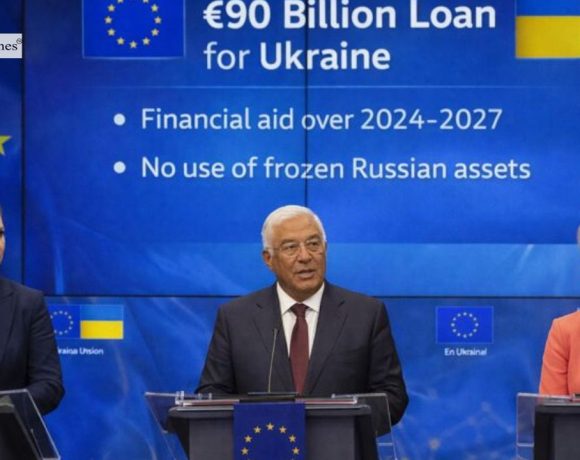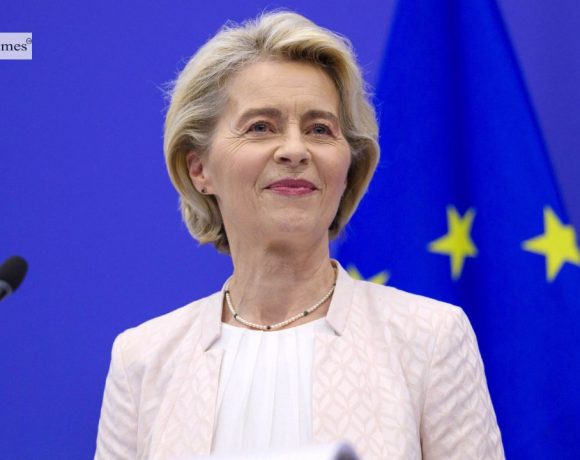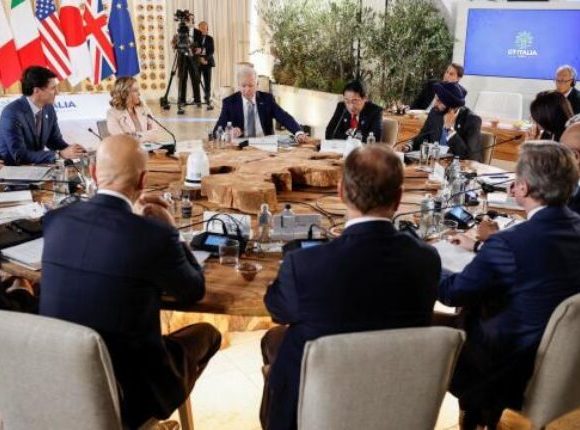The G7 has agreed to utilize frozen Russian assets to raise $50 billion (£39 billion) for Ukraine to aid in its defense against Russian forces. President Joe Biden emphasized this decision as a signal to Russia that the support for Ukraine remains steadfast. However, Moscow has warned of “extremely painful” retaliatory actions. The funds, anticipated to be available by the end of the year, are intended to support Ukraine’s war effort and economic stability in the long term.
At the G7 summit in Italy, Ukrainian President Volodymyr Zelensky and Biden signed a 10-year bilateral security agreement between the US and Ukraine, which Ukraine hailed as “historic.” This agreement involves US military and training aid but does not commit US troops to combat. It aims to enhance Ukraine’s defense capabilities, support its defense industry, and aid in economic and energy recovery. It also stipulates consultations at the highest levels in case of future Russian attacks on Ukraine to decide necessary support measures.
Separately, about $325 billion in Russian assets were frozen by the G7 and the EU following Russia’s 2022 invasion of Ukraine. These assets generate approximately $3 billion annually in interest. The G7 plan involves using this interest to cover the annual interest on a $50 billion loan for Ukraine, sourced from international markets.
President Biden, at the summit in Puglia, Italy, reiterated that the $50 billion loan would support Ukraine and send a strong message to Russian President Vladimir Putin. Zelensky expressed gratitude for the continued support from the US and other allies, calling the security deal with the US the strongest since Ukraine’s independence in 1991. Other G7 leaders, including UK Prime Minister Rishi Sunak, praised the loan deal as transformative.
The $50 billion loan compares significantly with the $61 billion in US military aid agreed upon in May. A senior White House official noted the loan would support various needs, including military, budget, humanitarian, and reconstruction efforts. While the frozen funds’ interest is seen as a symbolic victory for Ukraine, some in Kyiv had hoped for the release of the entire $300 billion frozen fund. However, the European Central Bank opposed this, citing risks to international order.
The funds from the loan will not immediately impact the war, as they are expected later in the year. Ukraine continues to seek more immediate military aid, such as air defense systems and F-16 fighter jets, which could start arriving in the summer. Zelensky mentioned that the new security agreement includes US shipments of these aircraft.
The loan arrangement symbolizes a significant move where Russia’s frozen assets are repurposed to support Ukraine’s defense. Although this marks a turning point, it is unlikely to change Russia’s stance on the war. Most of the frozen Russian central bank assets are in Belgium, and international law prevents their direct confiscation for Ukraine’s benefit. Russia has condemned the West’s actions as criminal and has hinted at severe retaliatory measures. European investors have around €33 billion stuck in Russia, complicating the situation further.
Picture Courtesy: Google/images are subject to copyright



